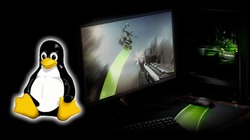Games: GNU/Linux Faster, Steam Deck Gets Easy Undervolting Controls, Jim Whitehurst Promoting .NET, Nvidia Reflex could be coming to Linux
-
Why Linux is so fast? [Ed: Misunderstandings about GNU and how it relates to UNIX]
Unraveling the Speed of Linux: A Deep Dive into its Efficiency
Linux, a free and open-source operating system, has been lauded for its speed and efficiency. But what exactly makes Linux so fast? The answer lies in its architecture, design philosophy, and the community that supports it.
Firstly, it’s important to understand what an operating system (OS) is. An OS is a software that manages hardware resources and provides various services for computer programs. Linux, created by Linus Torvalds in 1991, is one such OS. It’s based on the Unix operating system, which was developed in the 1970s.
-
Tom's Hardware ☛ Steam Deck Gets Easy Undervolting Controls With Firmware 118
SteamOS 3.5.1 Preview Update enhances the OS by delivering a range of fixes, and the new Firmware 118 introduces easy access undervolting controls.
-
Unicorn Media ☛ Red Hat’s Ex, Jim Whitehurst, Is Now Temporary CEO at Unity Software [Ed: Jim Whitehurst now a Microsoft .NET booster]
It’s been no secret that since Jim Whitehurst walked away from his position as president of IBM a couple of years back that he’s been hankering to find another company to run. Now he has one.
For the time being at least, Jim Whitehurst is again a CEO, this time at San Francisco-based Unity Software, the company behind the eponymous game engine that’s primarily used to create two- and three-dimensional games. It’s the game engine behind such popular games as Pokemon GO, Return of the Obra Dinn, Among Us, Slay the Spire, and Genshin Impact. It’s also used outside the gaming arena as well, in industries that includes film, automotive, architecture, engineering, and construction, as well as by the US Armed Forces.
-
Nvidia Reflex could be coming to Linux PCs through Proton
Valve’s Proton could be the catalyst to bring Nvidia’s Reflex software to Linux PCs but don’t expect it on the Steam Deck.
If you’ve been around the esports or graphics card scene in recent months, you’ll have encountered Nvidia Reflex. The software is designed to smooth the latency between moving a mouse and the action on the screen. It’s become essential for certain first-person shooters to get that upper hand.

